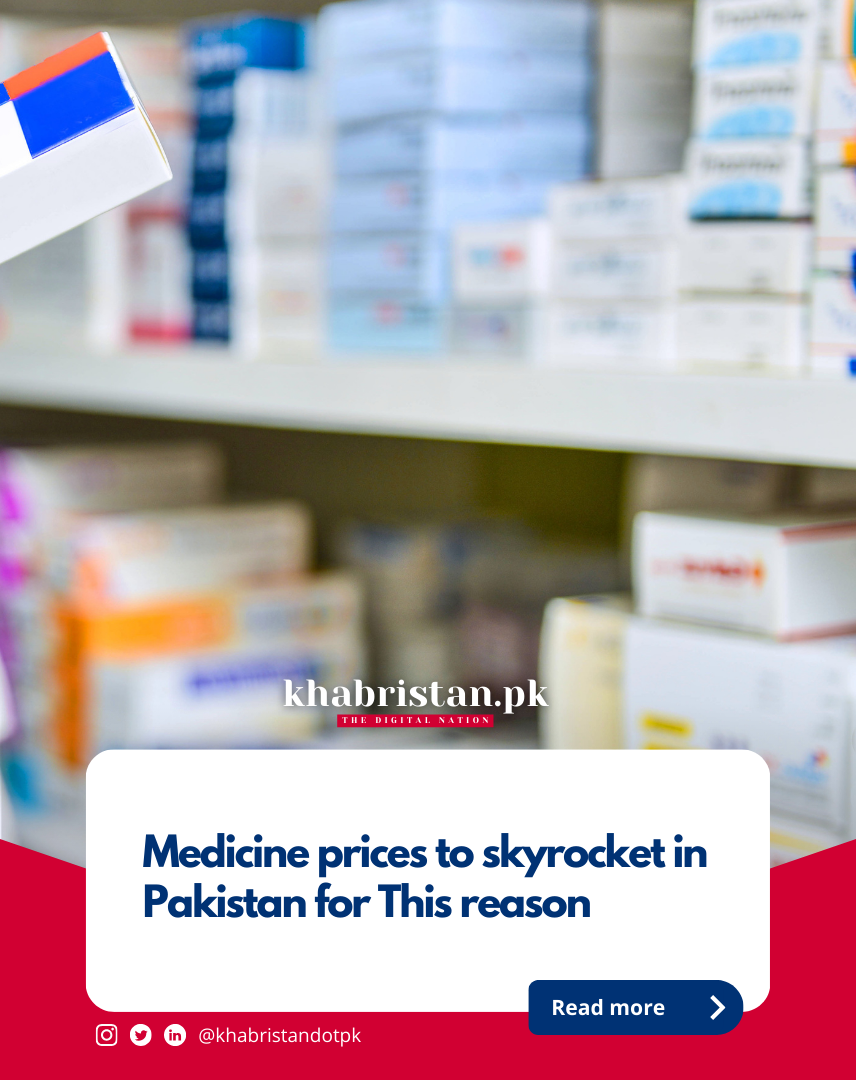Medicine prices in Pakistan are set to increase significantly due to a proposed 18% sales tax recommended by the IMF. Experts caution that this tax will make medicines unaffordable for many, giving pharmaceutical companies free rein to set prices. This recommendation comes amid the IMF’s policy-level talks with Pakistan on a bailout package.

ISLAMABAD: The prices of medicines are expected to rise exponentially in Pakistan after the imposition of an sales tax up to 18 per cent, ARY News reported on Tuesday.
According to the Ministry of National Health Services, Regulations and Coordination (NHS, R&C) official, the government has proposed an 18 percent sales tax on medicines in the next budget on the recommendation of the International Monetary Fund (IMF)
Experts warned that medicine prices will become out of reach for many people with the imposition of 18 pr cent GST. The step will allow pharmaceutical companies to set and sell medicines at prices of their choice, they say.
It is pertinent to mention here that the IMF’s recommendation for taxing medicines comes at a time when the previous caretaker government had already deregulated medicine prices.
Earlier it emerged that the International Monetary Fund (IMF) and Pakistan will begin policy-level talks on the bail-out package today.
The Fund had asked Pakistani authorities to impose tax on monthly pensions exceeding Rs 100,000.
The monetary fund demanded stringent economic measures for new loan program and legislation aimed at taxing wealthy pensioners.
According to sources, Pakistan has no alternative plan to the IMF loan program, and the government will need to implement the agreed-upon reforms to secure the loan.
Sources said that the new program aims to reduce subsidies from Rs 1,550 billion to Rs 800 billion and limit gas subsidies.
Additionally, electricity prices may also increase by 10-12%, and retail businesses will be required to document sales and prevent tax evasion, sources added.
The healthcare landscape in Pakistan is set to undergo a major shift with the impending surge in medicine prices. This concerning development has emerged due to a combination of factors, including shifts in global trade dynamics, changes in government policies, and the impact of the ongoing public health crisis. As a result, patients, healthcare providers, and policymakers are bracing themselves for the potential repercussions of this significant change.
One of the contributing factors to the anticipated surge in medicine prices is the evolving global trade environment. The international trade dynamics, including tariffs, trade agreements, and currency fluctuations, have a direct impact on the cost of importing pharmaceutical products. This, in turn, has a ripple effect on the pricing of medicines within Pakistan, leading to an upward trajectory in costs.
Additionally, changes in government policies related to pharmaceutical regulations and pricing mechanisms have contributed to the looming price hike. Adjustments in drug pricing guidelines and regulations can directly influence the affordability and accessibility of essential medications for the population. As these policies undergo modifications, the potential for an increase in medicine prices becomes a reality, causing concern for both patients and healthcare providers.
Moreover, the ongoing public health crisis has further exacerbated the situation. The demand for certain medications has surged due to the need to manage and treat the effects of the health crisis. This heightened demand, coupled with disruptions in the supply chain, has created a scenario where the equilibrium of supply and demand is at risk of being disrupted, potentially leading to inflated medicine prices.
In light of these impending changes, it is imperative for stakeholders in the healthcare sector to collectively address these challenges and work towards sustainable solutions. This may involve close collaboration between the government, pharmaceutical industry, healthcare providers, and patient advocacy groups to develop strategies that mitigate the impact of rising medicine prices. Furthermore, promoting transparency and accountability in pharmaceutical pricing and regulation can foster an environment where equitable access to essential medications is maintained.
The looming surge in medicine prices in Pakistan is a matter of significant concern that calls for proactive measures to safeguard the accessibility and affordability of healthcare for the population. By understanding the multifaceted factors contributing to this issue and engaging in constructive dialogue and action, the healthcare community can navigate through this challenging terrain and strive to ensure the continued well-being of the nation.
Source: ARY NEWS
The prices of medicines in Pakistan are set to soar due to an 18 percent sales tax proposed by the government, on the advice of the International Monetary Fund (IMF). Experts caution that this move will render medicines unaffordable for many. The IMF’s recommendations also include imposing tax on monthly pensions exceeding Rs 100,000, as part of stringent economic measures for a new loan program. Additionally, the program aims to reduce subsidies and increase electricity prices while ensuring retail businesses document sales to prevent tax evasion.
Disclaimer:
This content is AI-generated using IFTTT AI Content Creator. While we strive for accuracy, it’s a tool for rapid updates. We’re committed to filtering information, not reproducing or endorsing misinformation. – Khabristan.pk for more information visit privacy policy








Leave a Comment